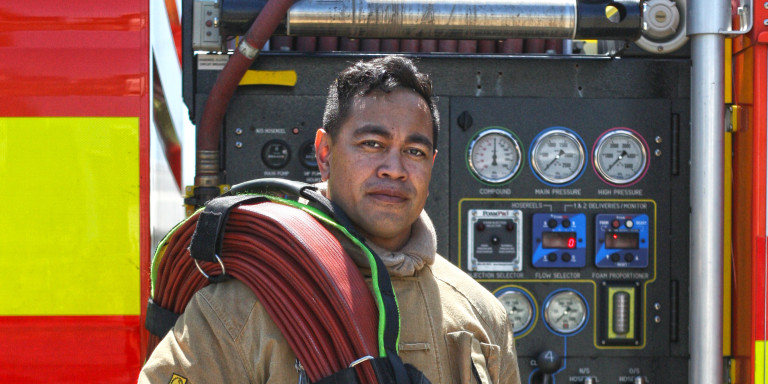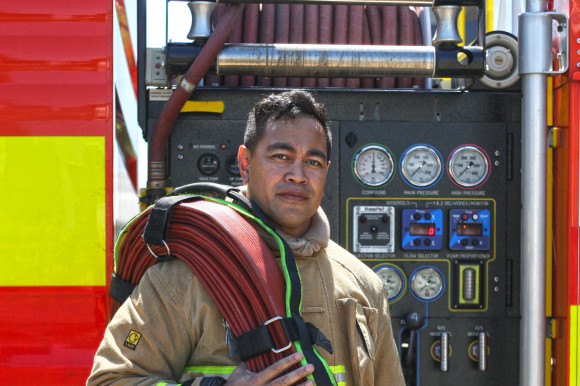About the job
A career as a firefighter is no ordinary job and extends beyond extinguishing fires. The work is fulfilling, rewarding and selfless. We help our communities when they need us, anywhere, anytime.


A career as a firefighter is no ordinary job and extends beyond extinguishing fires. The work is fulfilling, rewarding and selfless. We help our communities when they need us, anywhere, anytime.
On this page
As a Career Firefighter you will:
Once you successfully complete your Recruit Training Course, you start on station as a Firefighter, and can progress through frontline operational ranks to Senior Station Officer.
Firefighters are encouraged to learn on the job through fully funded training and development programmes. Some possible career pathways within our organisation, include:
For Fire and Emergency New Zealand to maintain 24/7 response, we operate under a rotating shift pattern, which is made up of four Watches – Blue, Brown, Green and Red.
While on a shift, firefighters remain on standby, ready to respond to emergencies at a moment's notice. Shifts are four days on and four days off.
During night shifts firefighters usually remain on station unless they are called to respond to an emergency event. Firefighters are able to rest in bedrooms provided during this period, but must maintain a state of readiness, for responding to an emergency event.
Note: there are a small number of stations that operate under a “Yellow Watch” system (this is different to described above). These shifts are from 7am – 5:30pm, 4 days per week between Monday to Friday, with the option of working the 5th shift at an overtime rate.
Rostered leave consists of 14 consecutive days within each 160-day cycle. You will be assigned a leave group, so you will know in advance when your leave is.
The starting salary of a firefighter is reflective of the intensive investment in learning and development that takes new recruits with no firefighting experience through structured progression to Qualified Firefighter. Fire and Emergency covers all these training costs and incremental salary steps are applied following attainment of progression milestones.
All firefighters who have completed their initial 12-week Recruit Training Course have the opportunity to earn more than their base salary by undertaking additional or specialist duties and working overtime.
For more information see our Collective Employment Agreement.